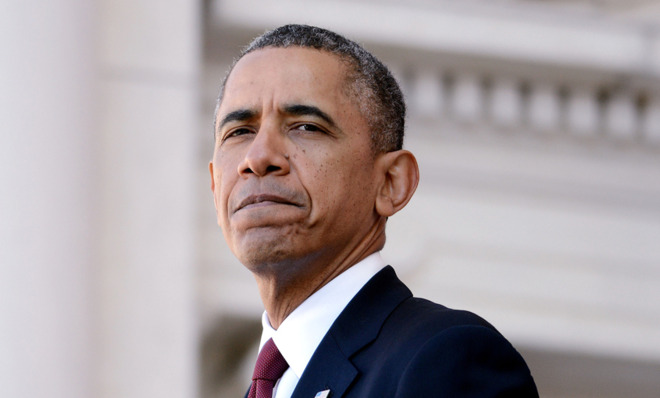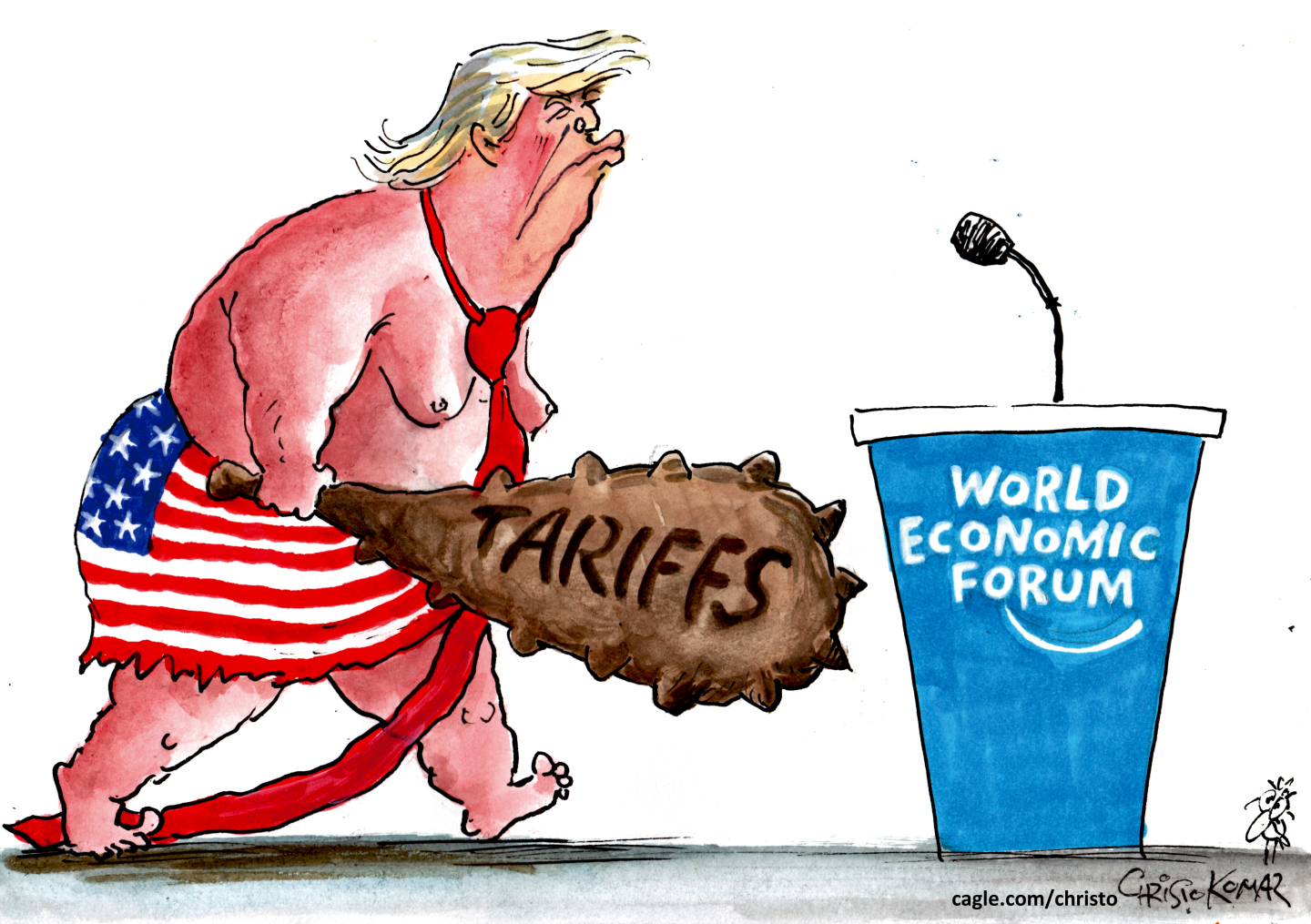Obama's honesty problem: How the president lost his biggest political asset
For the first time, a majority of Americans think Obama is not honest and trustworthy


As the government shutdown came to a close last month, President Obama said Washington would have to "earn back the trust of the American people."
The president apparently has a lot of work to do on that front as well.
For the first time in his presidency, a majority of voters do not think Obama is "honest and trustworthy" according to a Quinnipiac poll released late Tuesday. In the survey, 52 percent of respondents said Obama was not honest, while only 44 percent said he was, a striking change from January 2011, when nearly two thirds of voters trusted the president.
The Week
Escape your echo chamber. Get the facts behind the news, plus analysis from multiple perspectives.

Sign up for The Week's Free Newsletters
From our morning news briefing to a weekly Good News Newsletter, get the best of The Week delivered directly to your inbox.
From our morning news briefing to a weekly Good News Newsletter, get the best of The Week delivered directly to your inbox.
Also worrisome for Obama, that sentiment extended across different demographics. Six in ten independents said they no longer trusted the president, while majorities in every age bracket — including the 18-to-29-year-olds who have long been Obama's most ardent supporters — said the president wasn't trustworthy.
Obama's approval rating, meanwhile, slipped to an all-time low of 39 percent.
It's a stunning reversal for a president who, even when voters didn't like how he was running the White House, still came off as an honest steward. During the government shutdown, for instance, polls found that voters were far more willing to trust Obama than his GOP rivals. And in October, voters believed the president was honest by a 54-41 split, per Quinnipiac, numbers that Mitt Romney would have killed for.
Yet ObamaCare's terrible rollout has greatly eroded that invaluable asset, possibly taking with it some of the president's leverage to negotiate with Congress in looming battles on immigration and the budget.
A free daily email with the biggest news stories of the day – and the best features from TheWeek.com
By all accounts, the debut of ObamaCare's online exchange marketplace, a central piece of the overall health-care law, was a disaster. As a result, six in 10 voters now say they don't approve of how Obama has handled health care, according to Quinnipiac.
The bigger blow to Obama's credibility, though, came when insurance companies began dropping coverage for thousands of Americans because their existing health-insurance plans did not meet ObamaCare's more rigorous standards. Obama famously (and repeatedly) vowed that people who liked their insurance plans could keep them.
The Washington Post's resident fact-checker, Glenn Kessler, gave Obama four Pinocchios — denoting the biggest possible fib — for his vow that no one would lose insurance they liked.
"The president's promise apparently came with a very large caveat," he wrote. "'If you like your health-care plan, you'll be able to keep your health-care plan — if we deem it to be adequate.'"
Further, while ObamaCare is expected to drive down premiums in the insurance market as a whole, some Americans will actually see their out-of-pocket costs rise. That would, to some, appear to contradict Obama's claims that the health-care law would lead to big savings.
Perhaps as a result of such revelations, only 19 percent of respondents in the Quinnipiac poll said the quality of their health care would improve thanks to the Affordable Care Act. Forty-three percent, on the other hand, said the quality of their care would get worse.
Some Democrats — especially those with potentially difficult re-election campaigns next year — have begun to ding Obama for the apparent contradictions.
Rep. Kurt Schrader (D-Ore.) charged the president over the weekend with "grossly misleading the American public." And even Bill Clinton, though hardly Obama's closest political ally, took a swipe at him, saying he "should honor the commitment the federal government made to these people and let them keep what they got."
Feeling the heat, the president himself took the unusual step last week of issuing a public apology, saying in an interview with NBC, "I am sorry that [people who have lost coverage] are finding themselves in this situation based on assurances they got from me."
If voters don't come back around on the president, it could seriously hinder Obama's ability to wield the bully pulpit and score the big policy wins he's eyeing for the remainder of his term. Getting ObamaCare running smoothly — and soon — would be a big step in that direction.
Jon Terbush is an associate editor at TheWeek.com covering politics, sports, and other things he finds interesting. He has previously written for Talking Points Memo, Raw Story, and Business Insider.
-
 Claudette Colvin: teenage activist who paved the way for Rosa Parks
Claudette Colvin: teenage activist who paved the way for Rosa ParksIn The Spotlight Inspired by the example of 19th century abolitionists, 15-year-old Colvin refused to give up her seat on an Alabama bus
-
 5 contentious cartoons about Donald Trump at Davos
5 contentious cartoons about Donald Trump at DavosCartoons Artists take on weaponized tariffs, a cheeky offering, and more
-
 Trump’s ‘Board of Peace’ comes into confounding focus
Trump’s ‘Board of Peace’ comes into confounding focusIn the Spotlight What began as a plan to redevelop the Gaza Strip is quickly emerging as a new lever of global power for a president intent on upending the standing world order
-
 The billionaires’ wealth tax: a catastrophe for California?
The billionaires’ wealth tax: a catastrophe for California?Talking Point Peter Thiel and Larry Page preparing to change state residency
-
 Bari Weiss’ ‘60 Minutes’ scandal is about more than one report
Bari Weiss’ ‘60 Minutes’ scandal is about more than one reportIN THE SPOTLIGHT By blocking an approved segment on a controversial prison holding US deportees in El Salvador, the editor-in-chief of CBS News has become the main story
-
 Has Zohran Mamdani shown the Democrats how to win again?
Has Zohran Mamdani shown the Democrats how to win again?Today’s Big Question New York City mayoral election touted as victory for left-wing populists but moderate centrist wins elsewhere present more complex path for Democratic Party
-
 Millions turn out for anti-Trump ‘No Kings’ rallies
Millions turn out for anti-Trump ‘No Kings’ ralliesSpeed Read An estimated 7 million people participated, 2 million more than at the first ‘No Kings’ protest in June
-
 Ghislaine Maxwell: angling for a Trump pardon
Ghislaine Maxwell: angling for a Trump pardonTalking Point Convicted sex trafficker's testimony could shed new light on president's links to Jeffrey Epstein
-
 The last words and final moments of 40 presidents
The last words and final moments of 40 presidentsThe Explainer Some are eloquent quotes worthy of the holders of the highest office in the nation, and others... aren't
-
 The JFK files: the truth at last?
The JFK files: the truth at last?In The Spotlight More than 64,000 previously classified documents relating the 1963 assassination of John F. Kennedy have been released by the Trump administration
-
 'Seriously, not literally': how should the world take Donald Trump?
'Seriously, not literally': how should the world take Donald Trump?Today's big question White House rhetoric and reality look likely to become increasingly blurred
